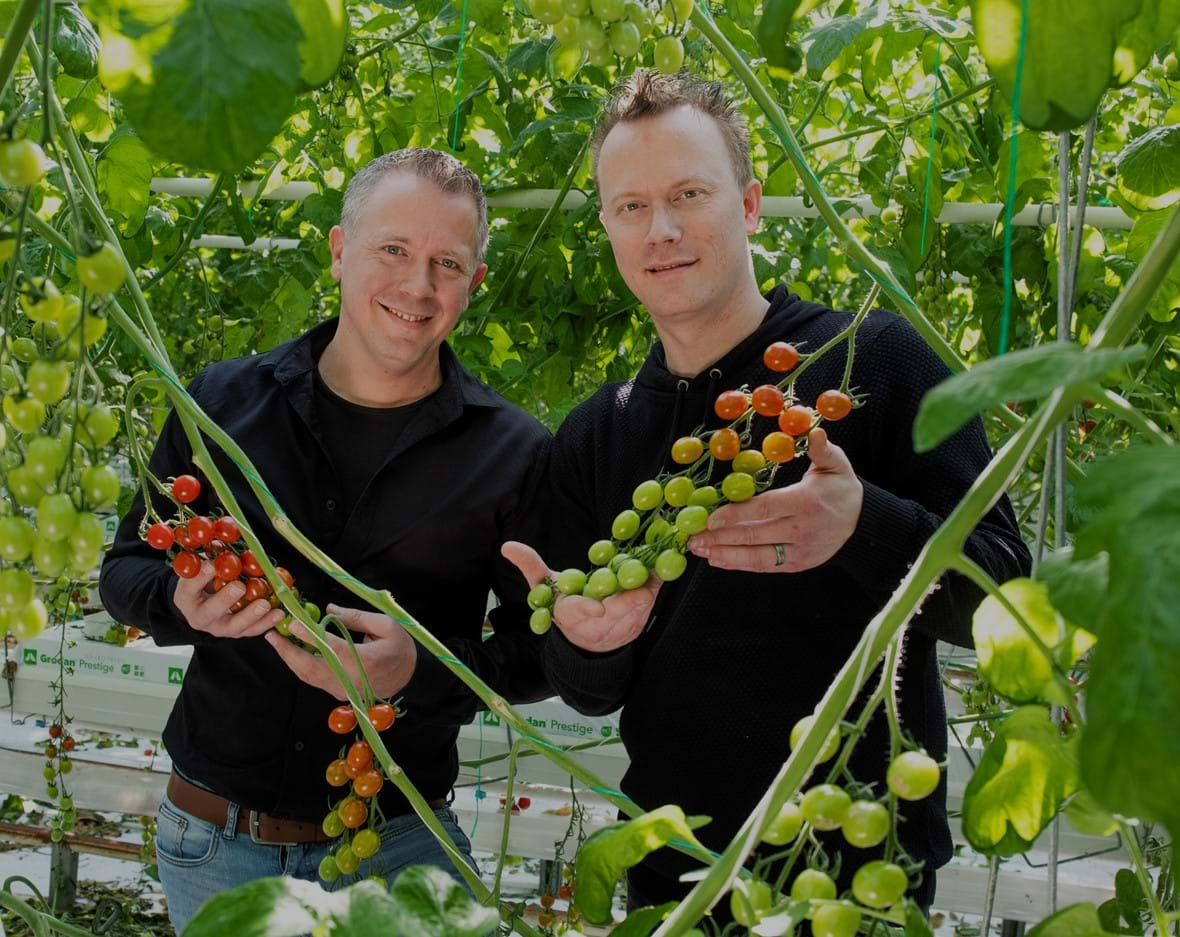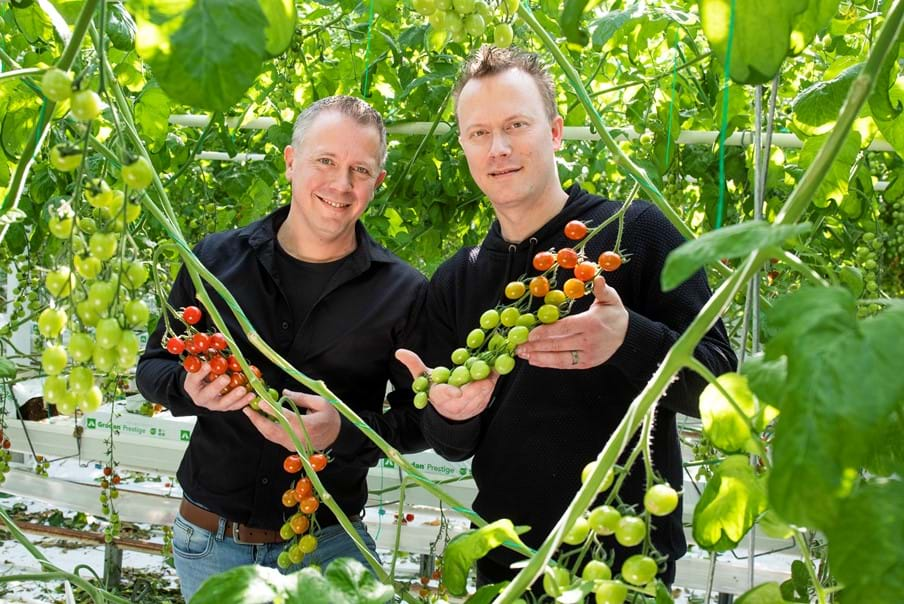A few months ago, snack tomato grower Westburg chose the PYLOT data platform as their preferred choice for the future. We asked Bas van Leeuwen about the reasons for this choice and their first experiences.

Snack tomato grower Westburg chooses PYLOT as The data platform for now and the future.
Snack tomato grower Westburg chooses PYLOT as The data platform for now and the future.
Brothers Bas and Ton van Leeuwen from the Dutch company Westburg, located in Limburg, grow five different varieties of snack tomatoes. They operate three greenhouses with a combined surface of 14 hectares. Since they have more and more data available from their different operational systems, they were looking for an open platform that links and combines their data and transfers this into clear and usable information. They made a confident choice for PYLOT, because it creates immediate benefit by generating fast available insights. And the platform offers great support for making the next steps towards autonomous cultivation.
How did you get to PYLOT?
Bas: 'We were looking for an open independent platform in which all possible systems can be connected - supporting our goal to stay supplier independent. We have spoken with various platforms that are making good progress. In PYLOT we saw the most possibilities for communication with other systems and it offered the most visually appealing interface.”
How did the implementation go?
‘We drew up a list of our wishes, the people at PYLOT assessed our company and our systems and connected these to the platform. This was completed in two weeks, after which the platform went live and produced a dashboard that shows all relevant information on a PC, tablet or telephone, in a very nice and comprehensive layout.'
Did the dashboard work right from the start?
“Yes, and the speed with which all the data on your phone is available, has surprised us. You wake up in the morning, pick up your phone and immediately see if the screens have closed in time, how full the buffer tanks are and whether or not the greenhouse climate is in line with our strategy. You can also dial into the climate computer, but everyone knows how cumbersome this is. This is also better on a laptop or PC and preferably with multiple screens, because then you have many tabs and must scroll a lot. With PYLOT you get the information with a few clicks on your phone and desktop. Conversely, if you want to adjust settings, this is faster on the climate computer.'
Does PYLOT actively provide alerts?
‘Yes, PYLOT also checks whether the strategy settings have been realised and provides AI based notifications if a certain bandwidth or climate settings are exceeded. Last week I indicated to the PYLOT team that I would like to be able to create more customized bandwidths for these types of notifications. This will allow us better monitoring of the cultivation strategy and will save more of our precious time. And this will become possible.”
This is already available in PYLOT. What do you want to be able to do with it in the future?
‘From now on, we will focus more and more on the result instead of towards the result, in other words: supporting autonomous cultivation. In traditional cultivation you aim for the ideal climate. This results in a plant that sometimes deserves a rating of 8 and then again, a 9 or a 7. What we want to achieve is the ideal plant status and this requires a good performing platform which collects, analyses and presents all relevant data.'
How do you achieve this?
“We started by determining what our ideal plant status is, the plant that deserves a 10 in rating. The ideal plant is determined based on a handful of specific characteristics, such as head thickness, flowering height, the distance between the leaves and the plant load. We currently measure these properties manually and enter them in PYLOT. There, a link is made with a program for autonomous cultivation. This program looks back at which settings have contributed to realizing the ideal plant. Those settings become the settings for the future. The program learns and takes the constantly changing weather conditions into account.'
Now you measure manually. Can this also be automated in the future?
“Yes, and we want that too, with cameras. This will enable us to monitor many more plants and do not have to enter the plant registration manually once a week, but it is done continuously. In theory, you can track all your plants this way, providing your autonomous growing program much more accurate averages. We have an exciting future ahead of us!”
With PYLOT, Westburg has everything they need to grow data-driven and actively use the data they collect in their greenhouses. In doing so, they have taken a crucial step towards the future! Are you curious about what PYLOT can do for your organization and how you can easily implement data-driven cultivation? Get in contact with our team!

Contact one of our specialists
Fill in your contact details and questions or remarks. We will contact you soon!